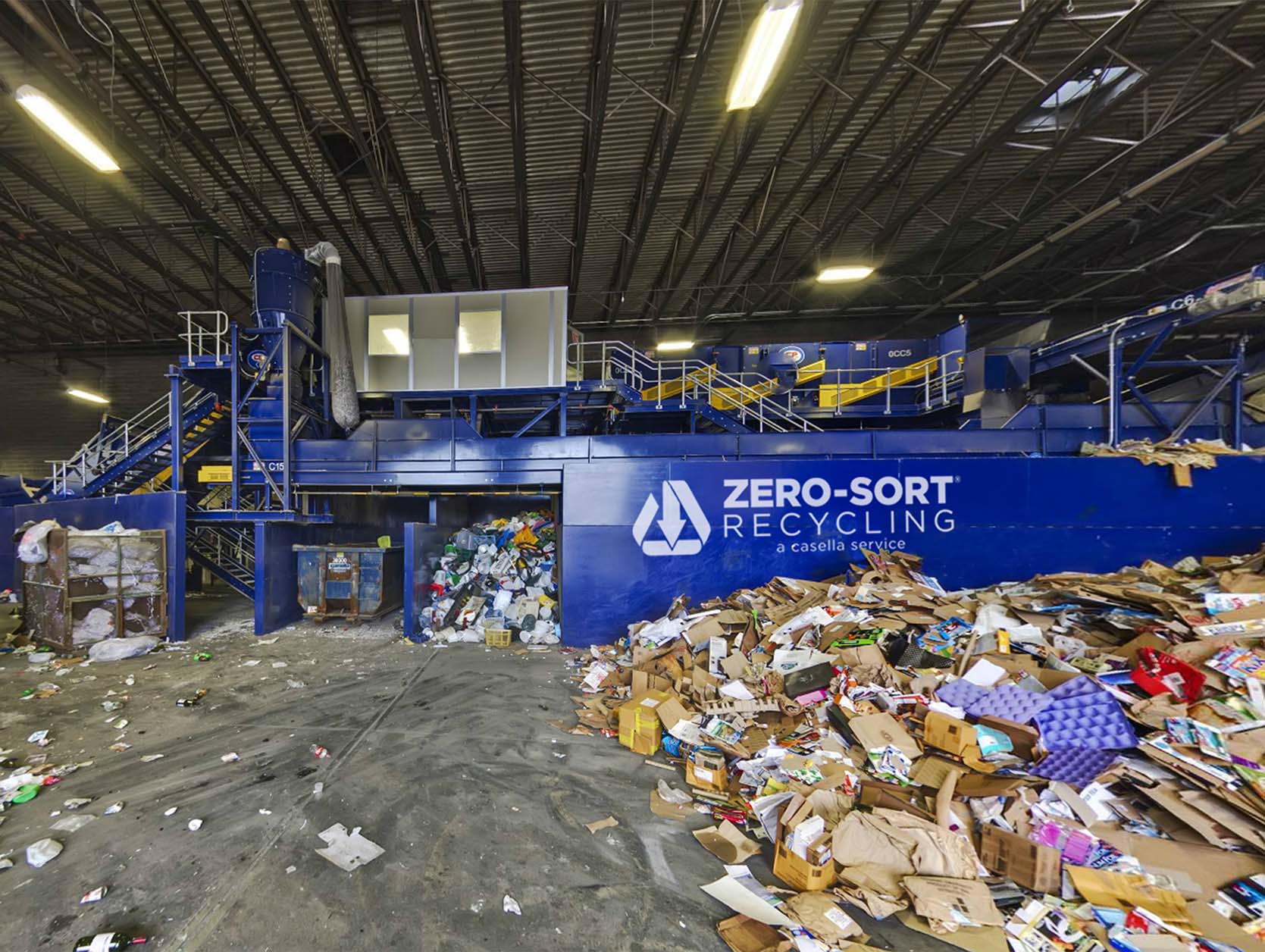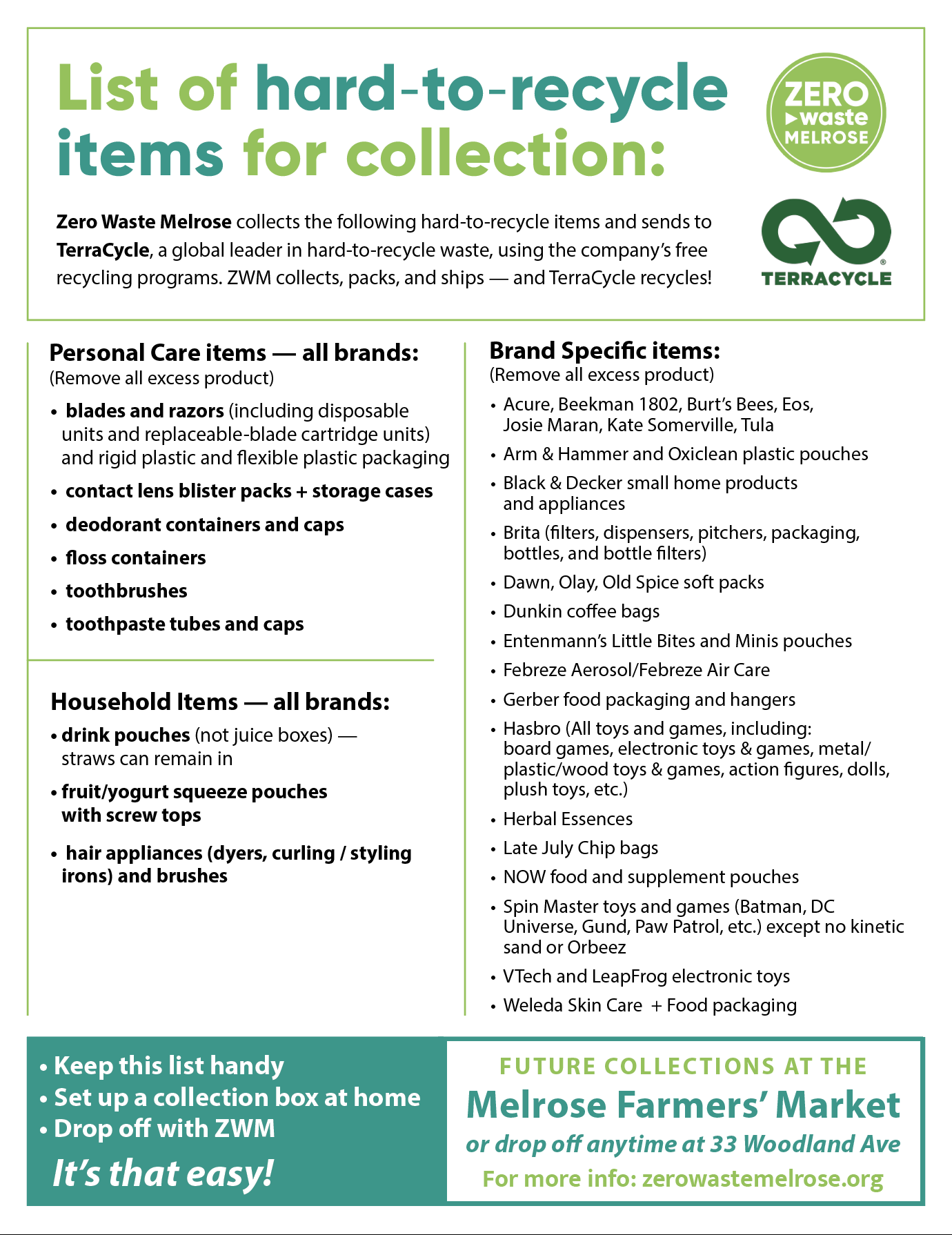Changes in Municipal Trash and Recycling Coming July 1st
On July 1st, the City of Melrose will be shifting to a new trash and recycling contract that will change how residential waste is collected.

New Trash and Recycling Bins
The new trash and recycling contract with Casella, which will replace the current contract with JRM/Republic, requires Melrose to participate in automated pickup. Trucks with an automatic hauler will lift trash and recycling bins to empty them into the truck without needing a person to collect the bins and return them to the curb. Automated pickup improves safety for workers, since, assuming that all trash and recycling is placed in the proper bins and the bins are placed so that the hauler can collect them, workers don’t need to get out of the truck during pickup. The Melrose Department of Public Works (DPW) reports that the entire industry is moving toward automated pickup, so this was part of all of the bids they received for the new contract.
For automated pickup to work, residents need to use new trash and recycling bins that fit with the automatic hauler. Melrose residents have already received these new bins and should start using them on July 1st. The bins were purchased using a grant and are owned by the city, which will repair and replace the bins as needed.
As part of the new solid waste contract, residents will see increased fees for waste collection. Previously the trash fee in Melrose was $200 per household; starting July 1st it will increase to $432 per household. This higher fee reflects the cost of the new contract, which is more than double the overall cost of the previous one.
Many municipalities across the country are facing similar fee hikes, as the cost of waste collection increases and landfills are charging more per ton of waste. These costs are likely to keep increasing, as landfills run out of space and waste needs to be transported farther to open landfills.
However, the less trash that our city disposes of, the less we will pay, collectively. Unlike some environmentally friendly initiatives that might be more costly, waste disposal is actually one area where the environmentally friendly choice is also the cheaper one.

Casella Recyling Facility
Photo From Casella
One way to reduce the amount the city pays for trash disposal is to recycle more. Recycling removes those items from the waste stream, reducing the amount that needs to be disposed of in landfills. Recyclers can sell materials to be reused, although it is a volatile market, with the prices of goods rising and falling based on demand and the costs of new materials. Recycling is only cost-effective, however, when residents follow proper recycling procedures. If too many non-recyclable materials end up in the recycling stream, that can contaminate other recyclables and reduce the price the recycling facility can get for those materials.

Materials Currently Accepted By Terracycle
From Zero Waste Melrose
Zero Waste Melrose (ZWM) provides another way to remove recyclable materials from the waste stream. They work with Terracycle, which recycles some materials that aren't accepted by single-stream recycling facilities. Terracycle partners with companies that sponsor recycling of specific products - Tom’s of Maine, for example, supports recycling of toothpaste tubes, while Brita sponsors recycling of their own filters. The materials that can be recycled through Terracycle change periodically, so residents should check the ZWM site for what is currently being accepted. ZWM has recycling events throughout the year, as well as collection at the Melrose Farmers’ Market once a month and limited collection at the Milano Center.
Composting is another way to reduce the cost of trash disposal. Food waste makes up 20-25% of garbage nationwide, so redirecting some of that into compost could reduce landfill costs significantly. A number of municipalities in the region, including Boston, Cambridge, Arlington, Medford, and Malden are now offering or piloting composting services. Some use a commercial compost collection service, like Black Earth Compost, while others have residents drop off their compost at central locations. The Melrose DPW is currently looking into offering composting, but composting is not part of the new contract. During her mayoral campaign, Mayor Jen Grigoraitis told ZWM that she wanted the city to offer incentives for more residents to compost. She also expressed support for composting initiatives in schools and municipal buildings, which could further reduce the city’s waste production if they are scaled up.
One segment of the city’s population that is not covered by municipal trash and recycling services are those who live in buildings with more than 6 units. These buildings are not served by municipal waste services and are not required to provide recycling services. While these larger buildings don’t affect the cost of solid waste disposal for other city residents, they still have an environmental impact, and during the last election season, several city councilors expressed their support for requiring larger buildings to offer recycling.
Trash will only get more expensive to dispose of in the future, so it’s worth considering how we, as a community, deal with solid waste. Each of us, as individuals, can make an effort to dispose of less trash and bring our city's waste disposal costs down.

Follow Us: